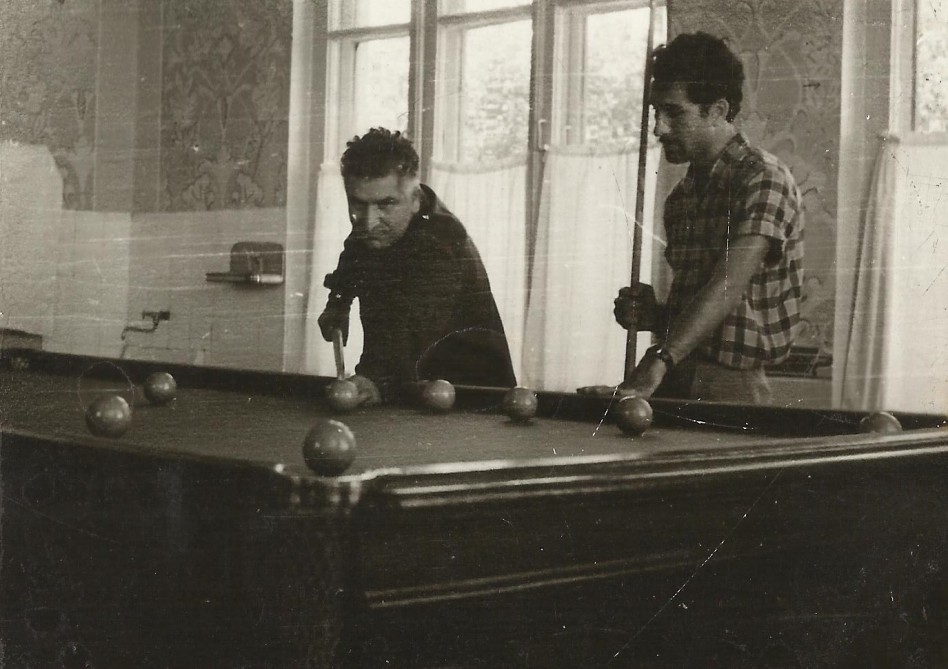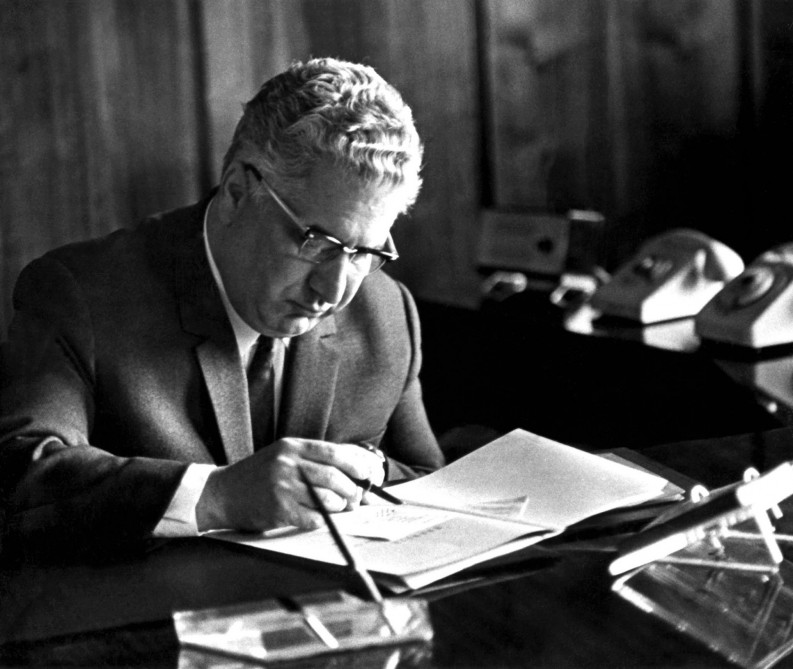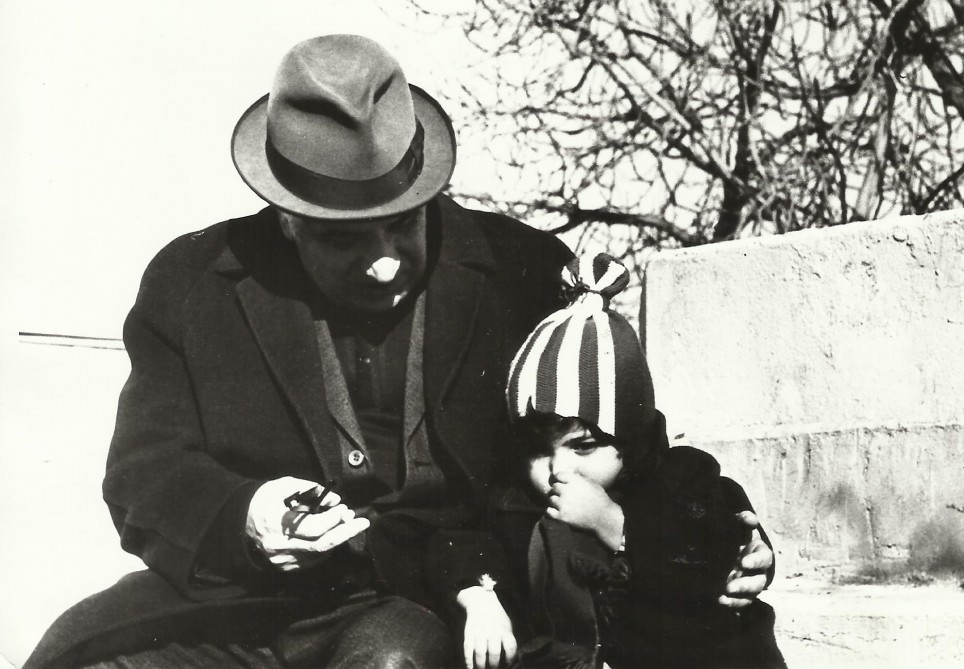This year marks 100 years since the birth of the outstanding scientist and public figure of Azerbaijan, Veli Akhundov. Being a doctor, he survived the war, became the director of the Institute of Epidemiology, the Minister of Public Health of Azerbaijan SSR, but during the Khrushchev Thaw he suddenly entered politics, becoming the First Secretary of the Central Committee of the Communist Party of Azerbaijan SSR. Only creative people, who are able to feel the atmosphere of those years, are able to understand the intricacies of the complicated twists and turns of such a fate. One of them is the Doctor of Arts, Rauf Farkhadov, whose musicological interest is defined by the fusion of musicology, philosophy and literature. He was not personally acquainted with Veli Akhundov, but he was able to understand his era.
Farkhadov decided to analyze how Akhundov was able to combine the intelligence and power: "He came to power in the late 1950s. Back then the Western intelligentsia begins to distance itself from the government. In 1964, 'One-Dimensional Man: Studies in the Ideology of Advanced Industrial Society' by Herbert Marcuse was published. Marcuse proposes a global formula for an intelligent person and writes that the only true, correct and decent position for an intelligent person is to be an outsider. Then the western intelligentsia, an intellectual studentship become hippies, join the non-resistance movement. They leave for the East, start a meditation practice, learn about an Eastern static, become addicted to drugs. I thought why not alcoholism, but drug addiction, until Roland Barthes's great work was released, which explains that drug addiction is static and distant, while alcoholism is aggression.
How did such an intellectual like Veli Akhundov come to power? He was a doctor, and doctors' sense of duty is stronger than anything else. Once Kant said about doctors: "The maxim of self-love (prudence) only advises; the law of morality commands". It is a strange feeling of an intellectual who is commanded by his duty, and if you have to do something, it means that you are able to do it. Veli Akhundov risked his life to save people; he made a surgery on a man with a mine in his foot. If such an intellectual, moral and dutiful man comes to power, it leads to quite unique and absolutely amazing results".

Describing Baku of the 1960s, Rauf Farkhadov expressed a view that its atmosphere was formed by art and sports. "Starting with breakthroughs in music, jazz, painting, literature and ending with our sports. There were no sport in Baku of that period, starting with handball and ending with field hockey, where athletes did not play in the Major Leagues. Baku, which has never really developed athletics, at this moment gives such people like Alexander Kornelyuk. He is a sprinter, who will win the silver medal at the 1972 Olympic games in Munich, competing with Valery Borzov. These are the last two white athletes who could compete with dark-skinned ones. A high jumper Nina Bryntseva appears in Baku, her record has not yet been broken. Our female handball players Shafiga Mammadova and Lyudmila Shubina... It was a unique breakthrough.
At this moment, our outstanding composer Gara Garayev travels to the US and returns depressed. "Oh my God, we fell behind by 30 years," he says. In 1963-1965 he studies a mechanism of composing, which was one of the most reactionary to the Soviet Union, the Soviet government, experimenting with the twelve-tone technique. After Garaev wrote his avant-garde Third Symphony and the Violin Concerto, they started to "gouge" him in Moscow, trample his rights as a human. Then Veli Akhundov, together with the entire government, with the party apparatus, attends a radical for that time ballet of Garayev's son Faraj 'The Shadows of Gobustan'. It was an indirect, covert support of Gara Garayev".

Farkhadov sees philosophical implications in Akhundov's resign from power in late 1960s: "One can explain it with poor health and he is tired of power, but the type of intelligent leader of the democratic orientation is disappearing in the historical context. The slogan "Life is absurd, the movement is everything and the final goal is nothing" appeared in the Western civilization. At this point, one of the greatest philosophers Michel Foucault ceases to cooperate with the French government, the composer Pierre Boulez leaves France. At that moment our democratic leader is replaced by a more rough and purposeful one. And to be able to refuse from a drug called power - that means a lot.

In 1970s, Erich Fromm releases a wonderful book 'To have or to be'. I think that Akhundov chose the concept of "being" - to be with his family, to be with his children, to be engaged in the profession, which he has chosen, to be in the house where he lives. Promoting things for the sake of which he lived, he created an amazing conglomeration of Azerbaijani medicine. The development of virology and micrology is also his system, it is also his sculpture".
Farkhadov completed his improvised study of Veli Akhundov's personality with a story he was told by Baku musicians: "In 1960s, an Italian kapellmeister, who was sympathetic to communists, arrived in Baku. He was met at the highest level. He specifically gave a concert for the party apparatus and tightened it until almost 7 pm. But the match of Baku's Neftchi was scheduled for 7pm. Our musicians in the symphony orchestra got crazy and depressed because they will not be able to see the game!
Then Akhundov gives his 'Chaika', which is stuffed with a half of the orchestra. All the guards passed the car, saluting it. The Chaika breaks into the stadium, to a government box, at a speed of light, and 20 people fall out of it. All of them were placed in a government box. The whole stadium flipped out! I do not know whether it's true or made up, but even if it is made up, it is worth to made up something like that about Veli Akhundov - such a personality!"






